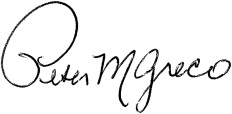You have been teaching at a university program for quite some time, and you have just completed a complex treatment plan involving 4 premolar extractions. As you review the diagnostic records, your bright young resident asks your preference for the bracket prescription. You reply, but she leans forward and informs you that the system has been discontinued from the clinic’s inventory. You ask when and why this occurred, and the resident tells you that a representative from a competing company recently convinced the class that his company’s bracket system was far superior to any other analogous appliance. This discussion and the ensuing decision occurred over dinner at your city’s 5-star restaurant as well as courtside at a professional basketball game, both hosted by the company. As you conceal your surprise, you ask whether the company’s representative provided any peer-reviewed literature to support his claim of his product’s superiority. The resident merely shook her head and smiled.
Is commercialism driving orthodontic education and unduly influencing orthodontic practice? Is it ethical for commercial entities to influence faculty or residents with gifts, meals, or other sales strategies? Has industry overstepped its boundaries by functioning as a dominating force in our specialty’s evolution?
Our specialty is indeed grateful for the respected and valuable support services that facilitate orthodontic care, especially those of the supply and technology companies. Yet, there are instances in which marketing skills and entrepreneurial spirit might be overzealous. Many of our colleagues in medicine have already addressed this issue. One major hospital’s newly developed commercial relationships policy confronted the issue of industry’s potential influence on education by clearly documenting the limitations of marketing involving medical students, residents, and personnel. Among other restrictions, the policy forbids these people from accepting gifts from commercial entities, regardless of the value and the location of the offering. In the hospital arena, commercial entities must obtain approval of their continuing education courses via meticulous review by the hospital’s continuing education committee. Meals can be distributed by the company only in conjunction with an approved continuing education program, regardless of the location. Product samples are to be distributed solely through a centralized disbursement facility in the hospital. Faculty and staff who have financial relationships with a commercial entity are excluded from involvement in decisions involving purchases from that company.
A variety of pharmaceuticals and appliances are advertised to the general public via numerous forms of media, including television, printed material, and so on. This marketing strategy is based on cultivating patient interest rather than evidence-supported assessment for the consumer (the doctor) and thus approaches advertising from an even different perspective.
If we as professionals intend to provide our patients with the best available treatment, our decisions to use services, technologies, or supplies should not be based on subjective criteria communicated in a slick fashion. Instead, our philosophies of practice must be influenced by “sound experience and bolstered by, but not exclusively, systematic scientific evidence.” We owe that to our patients and to ourselves.
We will continue to enjoy our collegial relationships with industries that allow us to provide optimal care for our patients. Now is the time for our specialty programs to consider the same limitations on commercial entities that our medical colleagues have implemented. Moreover, let us, as clinicians and educators alike, use highly critical thinking to guide our decision process rather than succumbing to sophisticated advertising or promotional techniques.





